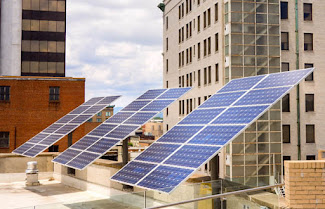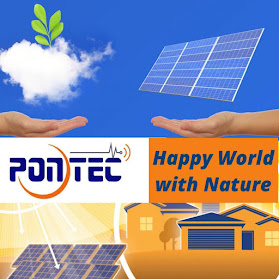Solar panel maintenance: Everything you need to know Solar panels are a great investment that can provide you with cheap, renewable solar energy for the next 25 years or more. But a key question is, how do you maintain them? Are solar panels like your car, requiring regular tune-ups to stay in peak condition? Or are you supposed to just leave them be? Do solar panels need to be maintained? Solar panels generally require very little maintenance in order to function, so yes, you can usually just let them be. The only thing they need is a periodic light cleaning to make sure dirt, leaves, and other debris aren't obstructing the sun's rays. How do you maintain solar panels? If your panels are tilted, you’re in luck: rainfall will actually clear away debris that's accumulated on them. However, during the dry season or extended periods without rain, it's important to clean them manually. It is generally recommended that you perform solar panel cleaning between two and f
Posts
Showing posts from August, 2022
- Get link
- Other Apps

TIPS ON INCREASING SOLAR PANEL EFFICIENCY Solar panels do not work equally under all conditions, but you can take proactive steps to improve the efficiency and output of your solar system layout or array. A few simple steps can ensure you are getting the best return from your solar investment. From positioning solar panels for optimal power generation to applying for utility rebates and green energy grants, these four tips can maximize your solar panels’ output and increase your energy savings. Eliminate Shade: Solar panels are designed to work best in direct sunlight. If the sun is blocked out by a tree or another building, your array’s output could be dramatically reduced. According to Energy Sage, shade is most detrimental for solar panels using a “string” type of inverter, which limits the array’s output to the intensity of the weakest panel. Even if only a small piece of your array is shaded, the entire installation’s output may be throttled back. Trim or remove trees around you
- Get link
- Other Apps

DO SOLAR PANELS WORK IN COLD WEATHER? WHAT'S THE SCIENCE BETWEEN SOLAR PANELS AND TEMPERATURE? Even in below-freezing weather, solar panels turn sunlight into electricity. That’s because solar panels absorb energy from our sun’s abundant light, not the sun’s heat. In fact, cold climates are actually optimal for solar panel efficiency. So long as sunlight is hitting a solar panel, it will generate electricity. Any diminished output during the winter months will primarily be due to heavy snow and shorter daylight hours. So, how do solar panels work? When sunlight photon particles hit solar panel photovoltaic cells, electrons in the silicon are put into motion. This creates an electric current, which is sent to your home’s electric distribution box to power your essential items. A rechargeable solar battery can help store this electricity so you can still use solar energy at night, during peak electricity usage, or when the grid goes down. Remember how electrons move around atoms?
- Get link
- Other Apps

REASON BATTERIES ARE EXTREMELY IMPORTANT FOR THE RENEWABLE ENERGY TRANSITION While renewable energy provides clean, sustainable power that emits little to no carbon emissions, its intermittency has long been an issue. Often criticized for not having the same base load capabilities as coal, natural gas or nuclear, renewable energy has lacked the ability to provide a constant source of energy. Furthermore, the dominance of internal combustion engine vehicles (ICEVs) has rested on the mileage of their electric counterparts until recently. Base load energy usually refers to the minimum power generation capability of a certain energy source, whereby it is able to produce the minimum amount of energy required by a power grid at any given time without interruption. For example, coal, nuclear, or natural gas power plants are able to assure base load power as long as there is fuel to burn, while the intermittency of renewables has always raised questions as to their reliability as a major en